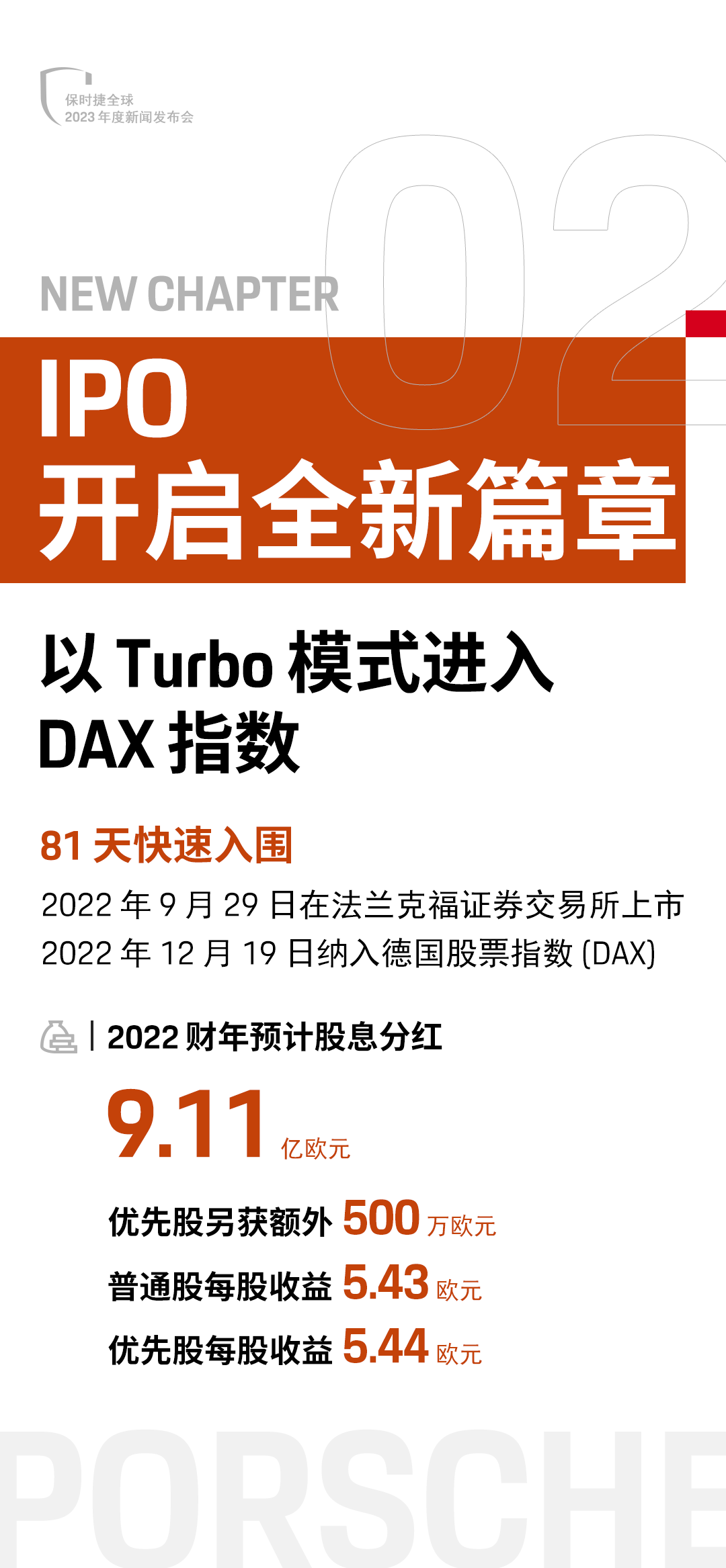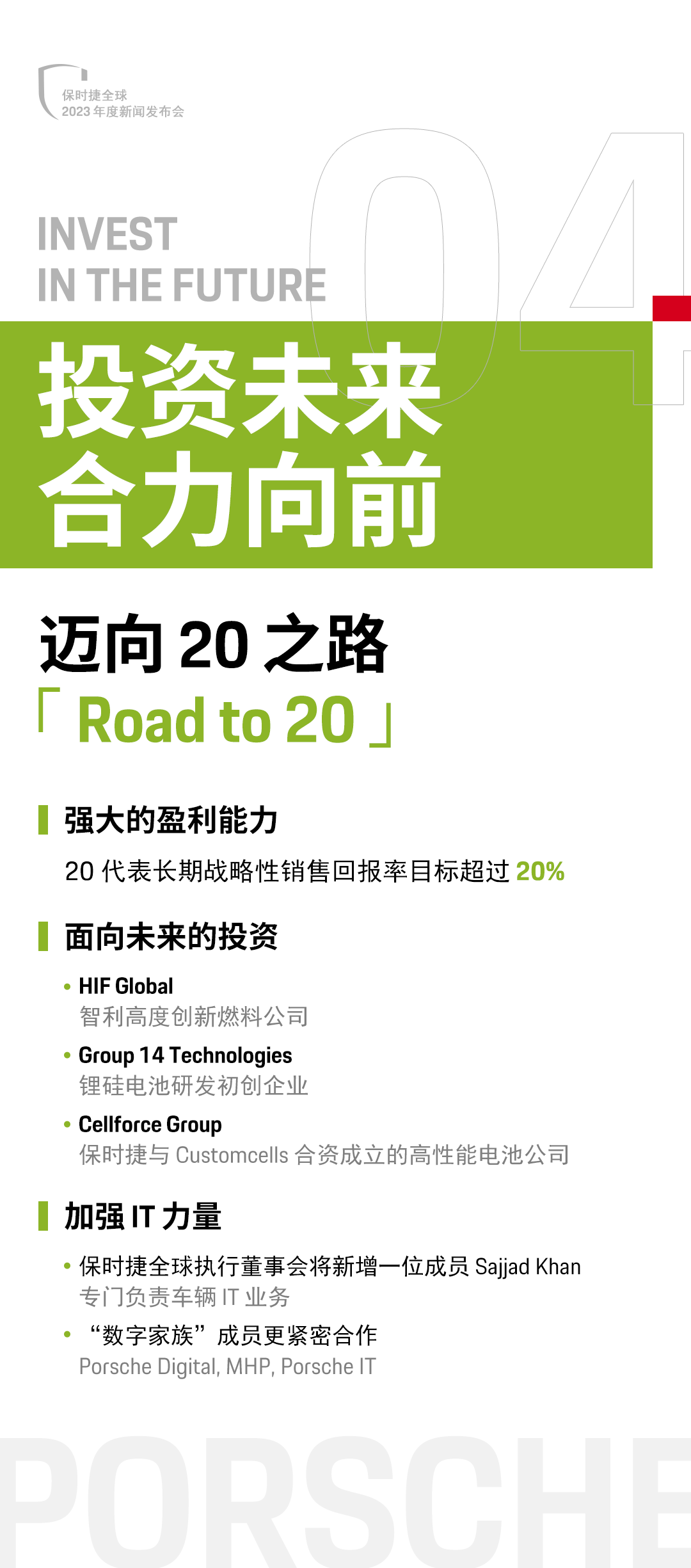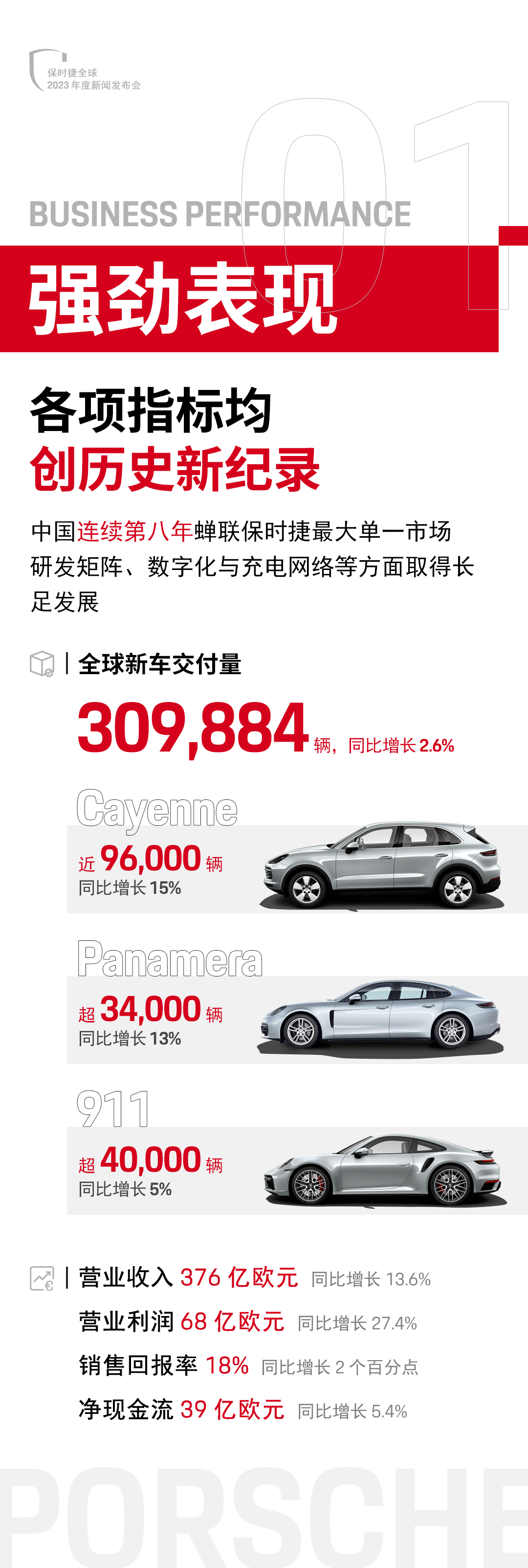On March 13th, Porsche released its 2022 performance report, with revenue of 37.6 billion euros, a year-on-year increase of 13.6\%, and the goal of selling 80\% new vehicles as pure electric vehicles by 2030.
In terms of global performance:
- Global new car deliveries totaled 309,884, an increase of 2.6\% year-on-year;
- Operating income was 37.6 billion euros, an increase of 13.6\% year-on-year;
- Sales profit was 6.8 billion euros, an increase of 27.4\% year-on-year;
- Sales return rate was 18\%, an increase of 2 percentage points year-on-year;
- Net cash flow was 3.9 billion euros, an increase of 5.4\% year-on-year.
In terms of global vehicle sales:
- Cayenne new car deliveries reached nearly 96,000, a year-on-year increase of 15\%;
- Panamera new car deliveries exceeded 34,000, a year-on-year increase of 13\%;
- 911 new car deliveries exceeded 40,000, a year-on-year increase of 5\%.
China has been Porsche’s largest single market for eight consecutive years, and has made significant progress in areas such as R \& D matrix, digitalization, and charging networks.

On September 29th, 2022, Porsche was officially listed on the Frankfurt Stock Exchange, ushering in a new chapter of development. On December 19th, 2022, Porsche was included in the German stock index (DAX).

In terms of electrification strategy, Porsche will adopt a “dual-e strategy”, namely e-Mobility and eFuels. e-Mobility refers to pure electric travel, and Porsche aims to sell 80\% new vehicles as pure electric models by 2030. eFuels refer to synthetic fuels as a substitute for traditional fossil fuels. The Haru Oni eFuels pilot plant, in which Porsche participated in investing, was put into operation in Chile in December 2022.
The specific plan for Porsche’s pure electric products is as follows:1. The product lineup continue to expand, with the new Cayenne plug-in hybrid model increasing to three;
- The pure electric version of the Macan is planned to be delivered in 2024;
- 718 will introduce a pure electric version in the mid-2020s;
- Cayenne will follow the trend of electrification, and launch a pure electric version of the Cayenne;
- A new pure electric SUV series positioned above Cayenne will be developed based on the SSP platform;
- Invest in new high-performance battery technology and continuously improve the charging network.
Porsche aims to achieve net carbon neutrality throughout the entire value chain by 2030, including net carbon neutrality during the use phase of future pure electric vehicles.
- In terms of product development: continue to transition to electrification;
- In terms of vehicle production: Porsche’s production locations in Germany — Zuffenhausen, Leipzig factories, and Weissach development center have all achieved carbon-neutral production processes;
- In terms of the supply chain: direct suppliers have committed to using certified green energy throughout their production processes.

This article is a translation by ChatGPT of a Chinese report from 42HOW. If you have any questions about it, please email bd@42how.com.
